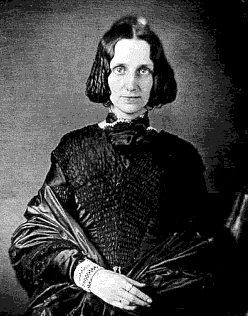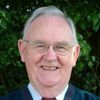Here is another significant date in the history of Christian Science: 6 January 1895. On that day the ‘Discoverer and Founder of Christian Science’, Mary Baker Eddy, gave a ‘Dedicatory Sermon’ in her rather lavish ‘First church’ in Boston, Massachusetts. The occasion? 2600 children had given generously towards a room in the building for their leader. Eddy wanted to acknowledge their contribution and seized the opportunity to commend her teachings.
This ‘Dedicatory Sermon’ was published with some favourable press reports under the title Pulpit and Press. The biblical text misused by her in the sermon was Psalm 36:8. Her foolish claim was that her teachings concerning God or Mind uniquely ‘satisfy’ people. There are some interesting references in the sermon to her movement and influence.
For example, she reports that in 1893 her ‘form of prayer’ (p.4) was used in the public sessions of the World’s Parliament of Religions. Again, referring to her Science and Health with Key to the Scriptures first published in 1875, Eddy claims twenty years later that it ‘is in its ninety-first edition of one thousand copies’. That is not all. ‘It is in the public libraries of the principal cities, colleges and universities of America; also the same in Great Britain, France, Germany, Russia, Italy, Greece, Japan, India and China; in Oxford University and the Victoria Institute, England, in the Academy of Greece and the Vatican at Rome’ (p.5). The claim illustrates the extensive distribution, as well as reception, of Science and Health in this period.
Great expectations
Eddy had great expectations for the continued success of her book. ‘I predict’, she said, ‘that in the twentieth century every Christian church in our land [USA], and a few in far-off lands, will approximate the understanding of Christian Science … and Christendom will be classified as Christian Scientists’ (p.14). Thankfully, that has not happened, although the influence of the cult’s teaching on sections of Christendom has been more extensive than we have appreciated.
In the sermon, Eddy provides two interesting examples of the way in which her teaching had affected church leaders. One relates to a Nonconformist minister in Boston, Rev. William R. Alger, whom she describes as a ‘brilliant enunciator, seeker and servant of Truth’. He gave considerable encouragement to Mary Baker Eddy. On one occasion he told a group of Boston intellectuals, ‘You may find in Mrs Eddy’s metaphysical teachings more than is dreamt of in your philosophy’ (pp.5-6).
Another person influenced by Eddy was the wife of a Protestant missionary. The woman’s name is withheld but she is quoted as saying, ‘I went with my husband, a missionary, to China in 1884. He went out under the auspices of the Methodist Episcopal Church. I feel “the truth” is leading us to return to Japan’.
Eddy explains that the woman had written to her in 1894 with news that she had received a copy of Science and Health only six months previously. ‘I had not read three pages before I realised’, she explained to Eddy, ‘I had found that for which I had hungered since girlhood, and was healed instantaneously… I cast from me the false remedy I had vainly used and turned to the “great Physician”‘. It is sad that a woman involved in Protestant missionary work in Asia should have been deceived by Eddy’s teaching. But she was deceived and commended these heretical ideas to others in subsequent years.
Final revelation?
Concerning her book Science and Health, she emphasises in the Dedicatory Sermon, that it is ‘the leaven fermenting religion … it is the upheaval produced when Truth is neutralising error and impurities are passing off…’ (p.5). In the same sermon she adds, ‘I have ordained the Bible and the Christian Science textbook, Science and Health with Key to the Scriptures, as pastor of The First Church of Christ, Scientist, in Boston’ (p.6). In other words, rejecting the system of local pastors she governs each group through her own misguided interpretation of the Bible. Eddy regarded her book Science and Health as special; she in fact describes it as ‘this final revelation of the absolute divine Principle of scientific mental healing’ (107:1-6).
How did she receive this ‘final revelation’? Her answer is, ‘through divine revelation, reason and demonstration … through Divine Power’ (109:20-23). According to Eddy, while the Bible has many ‘mistakes’ (139:15-22) and contradictions (522:3-5), her own book is ‘uncontaminated’ (457:1-2) and constitutes ‘the voice of Truth to this age’ (456:27-28). While her textbook is alleged to be ‘a companion to the Bible’, in practice it functions as the dominant, authoritative text and as the unique ‘key’ to the Bible.
Similar claims are made by other cults, of course, as books written by various cult leaders are elevated to levels of infallibility and supremacy. Despite their respect for the Bible, Science and Health is regarded by Christian Scientists as ‘the final word’.
Crucial point
Katie Bretz challenges Christian Scientists at this crucial point of the authority and sufficiency of the Bible. After being a cult member for over twenty years, ‘supported and spurred on by numerous physical healings’, she finally became a Christian through reading the Bible alone. ‘God worked in my life to draw me to Him – to have a vital, intimate relationship with the Lord Jesus Christ – and I was saved’, she testifies. ‘It was like walking through a door’.
Excitedly, Bretz warns Christian Scientists: ‘You need [to] stop the Christian Science filtering when you read the Bible. Put on and look through the glasses of [the] gospel – see the simplicity inherent in Christ’. And she adds, ‘I’ve learned that salvation is everything. What is a healing of cancer if it keeps you away from knowing the Lord Jesus Christ, and being saved? It’s a smoke screen’.
The challenge to read the Bible alone and without Eddy’s heretical commentary is renewed by Katie Bretz. The Bible, she insists, ‘is God’s Word. His Word is self-consistent’ and sufficient ‘without the filters of Christian Science’. On her web-page she writes: ‘I urge you to read Paul’s writings with an open heart. You need to read more of the Bible, have less filtering, and let it speak to you alone’.
In the closing part of her testimony, Bretz emphasises that the Bible ‘has changed my life forever… I read the Bible with new understanding and feel the love of the Father, Son and Holy Ghost’. Then, in conclusion, she declares, ‘So much awaits you! Christian Science doesn’t even touch 1% of what God is, or what He’s given you. “Waxed fruit and mud pies” are what you find in Christian Science!’
Uneasy reflection
That is the experience of others, too. Linda Stecher Kramer explains, ‘I kept reading the Bible, starting with the Gospels’. Christian friends, she reports, ‘just told me to keep reading’ the Bible and she was eventually converted reading Romans chapter 3, verses 23-25.
Another testimony to the power and sufficiency of the Bible is provided by Stanley D. Meyers who was considered to be a ‘successful Christian Scientist’, exemplifying the doctrines of Mary Baker Eddy. He was ambitious, too, achieving some of the top positions in the cult, especially in Akron, Ohio.
Providentially, Meyers with his wife started attending some home Bible studies conducted by Christians. He was impressed by their Bible knowledge but realised rather painfully that the teachings of Christian Science were in direct conflict with the Bible. An uneasy period of reflection followed as he tried to remain faithful to Mary Baker Eddy. But it was in vain. He concluded that ‘the teachings of Christian Science and the teachings of the Bible cannot both be true’.
Unexpectedly, one day as he was driving to work, he reports that ‘an absolute heart conviction overwhelmed me that the Bible is the Word of God. It is not a book written by men about God but a book written by God. The Bible is not a book by man seeking a lost God but a book about God seeking lost men. I could therefore believe every word in the Bible’, he insists, ‘because it was God’s declaration to men’.
And the result? Well, through the Bible and the Bible alone, he came to trust in Christ as Saviour and Lord. Why not read the Bible alone and, like Meyers, find the true and living God?
Note:Page numbers for Pulpit and Press are taken from the Christian Science web-site and may not correspond to the original printed book.








